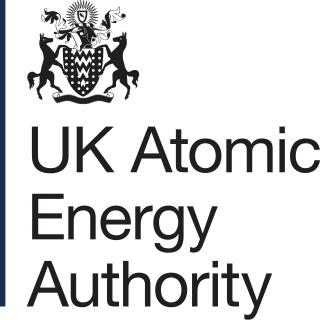
The United States Atomic Energy Commission (AEC) was an agency of the United States government established after World War II by the U.S. Congress to foster and control the peacetime development of atomic science and technology. President Harry S. Truman signed the McMahon/Atomic Energy Act on August 1, 1946, transferring the control of atomic energy from military to civilian hands, effective on January 1, 1947. This shift gave the members of the AEC complete control of the plants, laboratories, equipment, and personnel assembled during the war to produce the atomic bomb.

The European Atomic Energy Community is an international organisation established by the Euratom Treaty on 25 March 1957 with the original purpose of creating a specialist market for nuclear power in Europe, by developing nuclear energy and distributing it to its member states while selling the surplus to non-member states. However, over the years its scope has been considerably increased to cover a large variety of areas associated with nuclear power and ionising radiation as diverse as safeguarding of nuclear materials, radiation protection and construction of the International Fusion Reactor ITER.

British Transport Police is a national special police force that polices the railway network of England, Wales and Scotland. The force polices more than 10,000 miles of track and more than 3,000 stations and depots.

Law enforcement in the United Kingdom is organised separately in each of the legal systems of the United Kingdom: England and Wales, Scotland, and Northern Ireland. Most law enforcement duties are carried out by those who hold the office of police constable of a territorial police force.

The Atomic Weapons Establishment (AWE) is a United Kingdom Ministry of Defence research facility responsible for the design, manufacture and support of warheads for the UK's nuclear weapons. It is the successor to the Atomic Weapons Research Establishment (AWRE) with its main site on the former RAF Aldermaston and has major facilities at Burghfield, Blacknest and RNAD Coulport.

The United Kingdom Atomic Energy Authority is a UK government research organisation responsible for the development of fusion energy. It is an executive non-departmental public body of the Department for Energy Security and Net Zero (DESNZ).
Special police usually describes a police force or unit within a such an agency whose duties and responsibilities are significantly different from other forces in the same country or from other personnel within the same agency, although there is no consistent international definition. Generally, special police personnel hold some level of police powers; sometimes they hold the same powers and authority of other law enforcement officers within their jurisdiction, but at a minimum they will typically possess detainment and arrest authority. 'Special police' is also occasionally used when referring to an 'elite' law enforcement agency or unit, such as special weapons and tactics (SWAT) units or other similar paramilitary forces whom posses some level of police power. 'Special police' may also be used to describe individuals who are granted police powers incidental to their primary duties, such as welfare fraud investigators, certain security guards, child welfare investigators, and agricultural inspectors. Special police personnel may be armed or unarmed.

The Civil Nuclear Constabulary (CNC) is a special police force responsible for providing law enforcement and security at any relevant nuclear site and for security of nuclear materials in transit within the United Kingdom. The force has over 1,500 police officers and support staff. Officers within the force are authorised firearms officers due to the nature of the industry the force protects.

The Atomic Energy Act of 1946 determined how the United States would control and manage the nuclear technology it had jointly developed with its World War II allies, the United Kingdom and Canada. Most significantly, the Act ruled that nuclear weapon development and nuclear power management would be under civilian, rather than military control, and established the United States Atomic Energy Commission for this purpose.

The Ministry of Supply (MoS) was a department of the UK government formed on 1 August 1939 by the Ministry of Supply Act 1939 to co-ordinate the supply of equipment to all three British armed forces, headed by the Minister of Supply. A separate ministry, however, was responsible for aircraft production, and the Admiralty retained responsibilities for supplying the Royal Navy. During the war years the MoS was based at Shell Mex House in The Strand, London.

The US–UK Mutual Defense Agreement, or the 1958 UK–US Mutual Defence Agreement, is a bilateral treaty between the United States and the United Kingdom on nuclear weapons co-operation. The treaty's full name is Agreement between the Government of the United States of America and the Government of the United Kingdom of Great Britain and Northern Ireland for Cooperation on the uses of Atomic Energy for Mutual Defense Purposes. It allows the US and the UK to exchange nuclear materials, technology and information. The US has nuclear co-operation agreements with other countries, including France and other NATO countries, but this agreement is by far the most comprehensive. Because of the agreement's strategic value to Britain, Harold Macmillan called it "the Great Prize".

The Official Secrets Act 1911 was an Act of the Parliament of the United Kingdom. It replaced the Official Secrets Act 1889.

The Air Force Nuclear Weapons Center (AFNWC) is a USAF Named Unit, assigned to the Air Force Materiel Command at Kirtland Air Force Base, New Mexico. The AFNWC operates at the Center level of the AFMC. It is currently under the command of Major General John P. Newberry.
The Joint Committee on Atomic Energy (JCAE) was a United States congressional committee that was tasked with exclusive jurisdiction over "all bills, resolutions, and other matters" related to civilian and military aspects of nuclear power from 1946 through 1977. It was established by the United States Atomic Energy Act of 1946, and was the overseer of the United States Atomic Energy Commission. It had been preceded by the Senate Special Committee on Atomic Energy, chaired by Senator Brien McMahon. For its broad powers, it is described as one of the most powerful congressional committees in U.S. history. It was the only permanent joint committee in modern times to have legislative authority.

The Ministry of Defence Police (MDP) is a civilian special police force which is part of the United Kingdom's Ministry of Defence. The MDP's primary responsibilities are to provide armed security and counter terrorism services to designated high-risk areas, as well as uniformed policing and limited investigative services to Ministry of Defence property, personnel, and installations throughout the United Kingdom. The MDP are not military police. Service personnel often refer to the MDP by the nickname "MOD plod".

The Atomic Energy Authority Act 1954 is an Act of the Parliament of the United Kingdom which established the United Kingdom Atomic Energy Authority with powers to produce, use and dispose of atomic energy and to carry out research into this and related matters.

The Atomic Energy Authority Act 1959 is an Act of the Parliament of the United Kingdom which amended and extended the constitution and powers of the United Kingdom Atomic Energy Authority.

The Atomic Energy Authority Act 1971 is an Act of Parliament of the United Kingdom. The principal effect of the Act was to transfer certain functions, property and responsibilities of the United Kingdom Atomic Energy Authority to two newly established organisations, namely the British Nuclear Fuels Limited and The Radiochemical Centre Limited.

The Atomic Energy Authority Act 1973 is an Act of Parliament of the United Kingdom. The effect of the Act was to transfer the functions, property, liabilities and responsibilities related to atomic weapons from the Weapons Group of the United Kingdom Atomic Energy Authority to Ministry of Defence.














